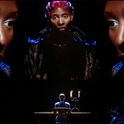Germany’s invasion of the USSR left a psychological wound that shaped Soviet attitudes to the Cold War. Rodric Braithwaite, the former UK ambassador in Moscow, shows how the resulting paranoia drove them to acquire the Bomb and nuclear parity with the Americans “at whatever cost.”
The Americans were also stricken with paranoia. The Soviet Union did not leak information, so the west was left to imagine their enemy—and they imagined the worst. “Understanding was often confused with sympathy,” writes Braithwaite, and so President John F Kennedy hardly dared try to see the Cuban Missile Crisis through the eyes of his opposite number, Nikita Khrushchev.
Braithwaite’s book seesaws between the two superpowers, their scientists, soldiers and strategies, revealing the treacherous paradox which underpins nuclear deterrence: “you intend to terrify your enemy into behaving properly; but you risk frightening him into doing something silly.” This precarious state required rational thinking, and the veteran Braithwaite, who was at the Foreign Office during the Cuban crisis and in Moscow for the fall of the USSR, laments its lack. He is a wise observer of how close we came to Armageddon. Reason was marred by “poisonous ideological fervour, mutual demonisation.” The lessons are obvious for the current leaders of America and North Korea.
Armageddon and Paranoia: The Nuclear Confrontationby Rodric Braithwaite is published by Profile (£25)

President Kennedy meets with Chairman Khrushchev at the U. S. Embassy. Photo: Kennedy Museum, Boston
What a new book on the Cold War could teach Trump (and Kim Jong-un)
Rodric Braithwaite's Armageddon and Paranoia seesaws between two powers—and has much to say to our present moment
September 14, 2017











